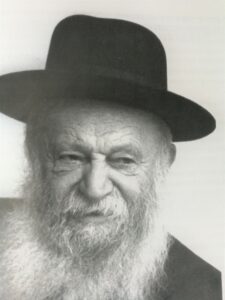Atchalta D’Geula – The Beginning of Redemption
HaRav Tzvi Yehuda Kook – as told by HaRav Shlomo Aviner in his book “Rabenu” found elsewhere on this site.

When HaRav Tzvi Yehuda would be asked, why isn’t the Redemption explicitly mentioned in the Torah, he would quote from the book “Leshem Shevo Ve’achlama” by Rabbi Yosef Shalom Elyashiv which explains that the Torah was given for us and not for Hashem. It includes things that we need to perform, not things that Hashem will perform. Hashem will perform the Redemption; therefore, the matter is only hinted at, not explicitly stated.
There is a dispute in the Gemara in Sanhedrin (97b) between Rabbi Yehoshua and Rabbi Eliezer. Rabbi Yehoshua says that there can be Redemption without repentance, and Rabbi Eliezer says that repentance will precede the final Redemption. Rav Elyashiv writes in the book “Leshem Shevo Ve’achlama” that it is almost explicit that Rabbi Yehoshua is correct (since Rabbi Eliezer was silent – Sanhedrin 98A). HaRav Tzvi Yehuda said: What is “almost explicit”?! It is explicit!
When asked what should be said to the unconvinced sector of the Charedi (Ultra-Orthodox) public regarding the Redemption, he replied, “We are not Karaites! We are Talmud-faithful Jews. The Talmud itself teaches us about the revealed Final Redemption. It says that there is no clearer sign of the Final Redemption than when the Land of Israel yields its fruit abundantly to the Jews returning to the Land. This idea is explicitly expressed in the Talmud (see Sanhedrin 98A). One only has to open one’s eyes to see that this is occurring today!”
The Talmud tells us that one of the questions a person is asked on his day of judgment is, “Did you carry out your business matters faithfully (i.e. honestly)?” HaRav Tzvi Yehuda would interpret this figuratively to mean: did you busy yourself with faith – did you study Emunah, the foundations of Jewish Faith? Another question asked at the gates of Heaven is: “Did you anxiously await the Redemption?” HaRav Tzvi Yehuda would explain by quoting the words of the Ran (Rabbenu Nissim), “Did you anxiously await the fulfillment of the words of the Prophets in your days?”
HaRav Tzvi Yehuda would say: Atchalta De-Geulah is not now; it was a hundred years ago! Now we are in a more advanced stage of the Redemption.
In response to the question of whether or not we stand today at the threshold of the long-awaited Final Redemption, HaRav Tzvi Yehuda answered that Rabbi Shlomo Alkabetz was already talking about the beginning of Redemption in his day (500 years ago). HaRav Tzvi Yehuda also recounted how when he met with Rabbi Leib, son of the Chofetz Chaim, Rabbi Leib recalled that when his father received word concerning the establishment of the city of Petach Tikva, he called for his son, and exclaimed, “Reb Leib, the event (the Redemption) has begun.”
A student asked HaRav Tzvi Yehuda how we know that this is the Redemption. He responded: “Is there an ingathering of the exiles or not?!”
A student who was assisting the aging Rosh Yeshiva at home sat next to him while he slept. The student accidentally moved his chair and it made a loud noise. HaRav Tzvi Yehuda woke up in alarm and said: “Did you hear?” “Hear what?” the student asked. “You did not hear? You did not hear the powerful voice of Hashem which gathers the downtrodden of His Nation to the Land of Israel?!”
When Chabad advertised that they were writing a Torah which would help advance the coming of the Mashiach, HaRav Tzvi Yehuda was asked how to relate to such a pronouncement. He responded: “One needs to be careful about such claims.”
A student skeptically inquired: “This is the State which the prophets promised?” HaRav Tzvi Yehuda stopped him and said: “This is exactly the State which they promised!”
It happened that a farmer told HaRav Tzvi Yehuda that a red heifer was born on his farm, and he asked whether this had any significance. HaRav Tzvi Yehuda responded without excitement, “Sometimes brown cows are also born.” However, when another student told him that his cousin had just arrived on Aliyah and would be coming straight to the Yeshiva from the airport, HaRav Tzvi Yehuda became very excited, even though he did not know the student’s cousin. He turned his chair to face the door in anticipation, and then continued to teach. Every quarter of an hour he inquired if the person making Aliyah had reached the Yeshiva. Finally he received the good news that he had arrived. HaRav Tzvi Yehuda stood up, and of course all of the students stood up with him. He approached the oleh chadash, hugged him, kissed him, sobbed in happiness and recited the “Shehechiyanu” blessing with Hashem’s Name and Kingship.






